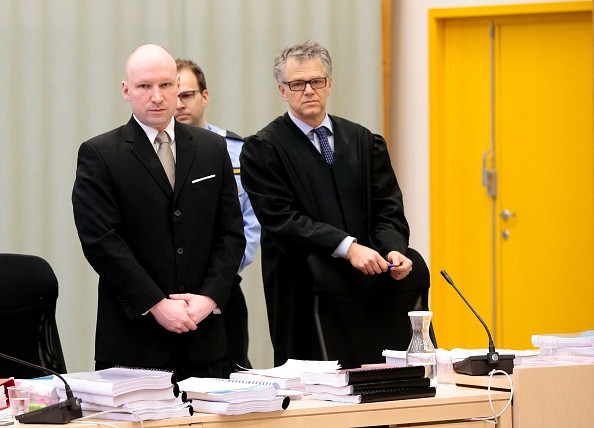Anders Breivik: Why extreme beliefs can be mistaken for psychosis
People can hold extreme beliefs and commit violent crimes without suffering from psychosis, scientists have said. Looking back at the Anders Breivik case - who killed 77 people in Norway in 2011 - a team from Missouri University has concluded that extreme views are too often considered as evidence of psychosis, even though individuals may in fact be sane and conscious of their acts.
The case study, published in the journal of the American Academy of Psychiatry and the Law, describes the context of Mr. Breivik's conviction and proposes a new way to look at his beliefs - defining them as "extreme overvalued ideas".
Two diagnosis and a lot of confusions
Breivik was assessed by psychiatrists to see if he could legally be held accountable for his actions. A diagnosis of psychosis could have made him "legally insane" at the time of the killing, and unfit for imprisonment.
Forensic psychiatrists who examine people with extreme beliefs often struggle to understand such views. The problem is they may mistake them for symptoms of psychotic delusions. A team had earlier diagnosed Breivik with schizophrenia.

After heavy criticisms, a second team assessed him again and judged him sane at the time of his acts. No hallucinations or delusions had driven him during the killing, they said. However, the experts did point out he suffered from a severe narcissistic personality disorder, which may explain some of his extreme views.
The study's authors think this confusion over diagnosis is due to fuzzy definitions of what psychotic disorders are. This makes it hard for doctors to separate extreme beliefs from manifestations of psychotic disorders, like schizophrenia.
"Breivik believed that killing innocent people was justifiable, which seems irrational and psychotic," explains lead author Tahir Rahman. "However, some people without psychotic mental illness feel so strongly about their beliefs that they take extreme actions. Current clinical guides, such as the Diagnostic and Statistical Manual of Mental Disorders, offer vague descriptions of alternative reasons a person may commit such crimes. Our suggested term for criminally violent behaviour when psychosis can be ruled out is 'extreme overvalued belief".
Extreme overvalued belief
The psychiatrists define extreme overvalued belief as "a belief that is shared by others in a person's cultural, religious, or subcultural group. The belief is often relished, amplified, and defended by the possessor of the belief and should be differentiated from a delusion or obsession".
The individual has an intense emotional commitment to the belief and may act violently in its name. Other forms of mental disorders, such as personality disorders may be present in this context, but violent acts are not a result of psychosis.
Identifying extreme overvalued belief can thus be helpful to determine if an individual is responsible for his acts. "In courts of law, there are not clearly defined, standard methods of diagnosing insanity for legal purposes," Rahman said. "This new term will help forensic psychiatrists properly identify the motive for the defendant's criminal behaviour when sanity is questioned."
© Copyright IBTimes 2025. All rights reserved.






















